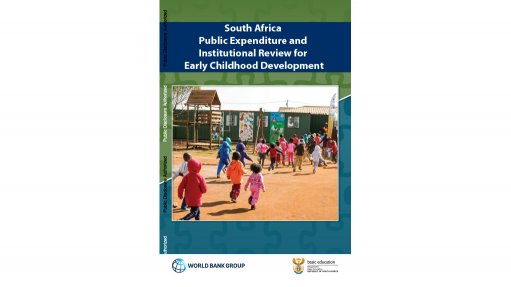
The purpose of the PEIR is to inform planning and programming to help ensure all young children in South Africa receive a comprehensive package of integrated ECD services to build the foundations to thrive later in life. The PEIR presents new evidence on public expenditure on early learning, support for families, and early nutrition services to promote ECD. Based on this evidence, it identifies opportunities to increase and improve public expenditure to support further expansion of ECD services and quality improvements. This is combined with suggestions on how to strengthen inter-departmental and cross-government collaboration to ensure improved delivery of ECD services.
“The PEIR recommends that increased investment in ECD should focus on a set of critical actions with the highest expected returns, combined with targeting of groups of children that are at a disadvantage in terms of access to ECD services,” says Asmeen Khan, World Bank Manager of Operations, for Southern Africa, responsible for Botswana, Eswatini, Lesotho, Namibia, and South Africa. “The indicative cost of implementing these actions to reduce child malnutrition and improve access to and the quality of early learning is just over R11-billion annually which is minimal when we consider the potential benefits of these investments in terms of child development.”
The PEIR finds that a substantial increase in funding for the ECD system is required if the Government of South Africa’s goals of reduced malnutrition in the early years and improved early learning are to be achieved. To adequately fund the ECD system is challenging in an environment of limited fiscal resources and uncertainty over the future economic outlook. Therefore, additional investments in ECD should involve focusing on a set of key services with the highest expected returns, sequenced to ensure fiscal affordability, as well as targeting of additional funding to groups of children, currently at a disadvantage in terms of access to ECD services.
Increasing access to early learning services will require three priority actions: (i) streamlining the processes for ECD programme registration and subsidy application in cooperation with private intermediaries; (ii) increasing access to infrastructure grants for private providers of ECD programmes; and (iii) providing provinces with sufficient funds to provide subsidies for all children attending ECD programmes who meet the eligibility criteria, while returning the subsidy amount to the equivalent of its 2015 value.
Five priority actions for improving the quality of early learning services were identified as: (i) conducting a capacity needs assessment of the Department of Basic Education and provincial departments of education, and recruiting and training staff as required given the ECD function shift; (ii) regularly measuring child development outcomes, including for those not attending ECD programmes; (iii) establishing a system to assure the quality of ECD programmes that is focused on supporting and incentivising providers to improve quality; (iv) training ECD practitioners to follow effective child development practices; and (v) improving the attractiveness of a career as an ECD practitioner through higher remuneration.
In order to reduce malnutrition in the early years, the PEIR presents two main priorities: (i) allowing women to apply for the child support grant (CSG) during the second trimester to be processed during pregnancy, and (ii) raising the CSG amount for children ages 0-24 months from its current level to cover a basic per child food cost.
Lastly, the PEIR recommends strengthening the institutional arrangements for ECD service delivery by (i) reviving and strengthening existing coordination structures and linkages in the ECD system and (ii) working towards holistic planning, budgeting and implementation, to ensure adequate funding that is efficiently allocated, to help achieve the desired ECD outcomes of reduced malnutrition in the early years and improved early learning.
Report by the World Bank & Basic Education